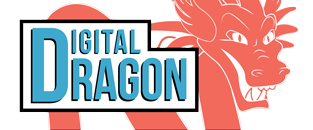
This month we will focus on navigating the future of learning as well as navigating the near future in terms of what to look for in a summer camp. Just last week I was able to attend a national summit in Colorado which brought together a wonderful cast of those interested in remaking education. During the two day event, we were able to paint an image for an ideal educational environment and then theorize on how we might get there through the drivers of change provided by the forecasting group. What’s great about the future is that it is truly up to each and every one of us to shape!
One of the first drivers of change discussed was titled as “Automating Choices.” Ever more so are choices being made for us. Personalized streams of content travel in and out of our classrooms, homes, and pockets. While these algorithms can and often are efficient, they can raise questions around bias and ethical data usage. Therefore, it is important think and design our educational experiences around learning to create and understand these tools rather than simply consume them – as convenient as they are. While exposure to the these topics are few and far between in our classroom, summer camps can take a deeper dive into the technologies.
Another driver of change highlighted in the report was that of “Civic Superpowers.” The outlets for various media are abundant and the barrier for entry is getting lower and lower. Examples of these could include unified hashtags and live streaming. These are powerful tools and documentation is a vital part of the learning process. Look for educational experiences that are active on the right channels and provide authentic examples of what learning looks like – not just the bells and whistles and high polish levels of editing.
Moving on from an outward projection, we shift towards the driver labeled as “Toxic Narratives.” This driver went right to my heart as it outlined current metrics of success and the harm – which can often be invisible until it is too late. We may have experienced (or probably know someone who has experienced) being regarded as an asset rather than a person – and we know it’s not good. What can these stressors take the form of? As one might imagine, they include, but are not limited to; high-stakes testing and college applications. These negative narratives can be mirrored online and in other social circles, pushing the individual even further towards an unhealthy spot. After school activities and camps can be an outlet and safe haven from these very real threats. Are we designing our learning opportunities to support a broader definition of success?
TLDR: The drivers of change highlighted in this post are from the KnowledgeWorks Foundation publication: Navigating the Future of Learning Forecast 5.0. It should act as a wake up call as well as a call to action. Learning happens everywhere and we must recognize and celebrate that – in school, out of school, all year around.
Check out Digital Dragon’s spring and summer camp programs, your kids will learn to create rather than consume tech!
John Balash was instrumental in Digital Dragon’s launch in 2013 as its first Curriculum Director and is now back in the fold as a consultant on all the latest and greatest in tech education.This is John’s latest contribution to a monthly blog series we’ve launched, Tech News from the Frontier. John is the Director of Educational Engagement at Carnegie Mellon University’s Entertainment Technology Center. John has worked on educationally focused initiatives with clients ranging from D.A.R.P.A. to Disney. Working from both sides of the desk, you can find John in classrooms and conferences around the world exploring new uses for technologies in learning environments.
